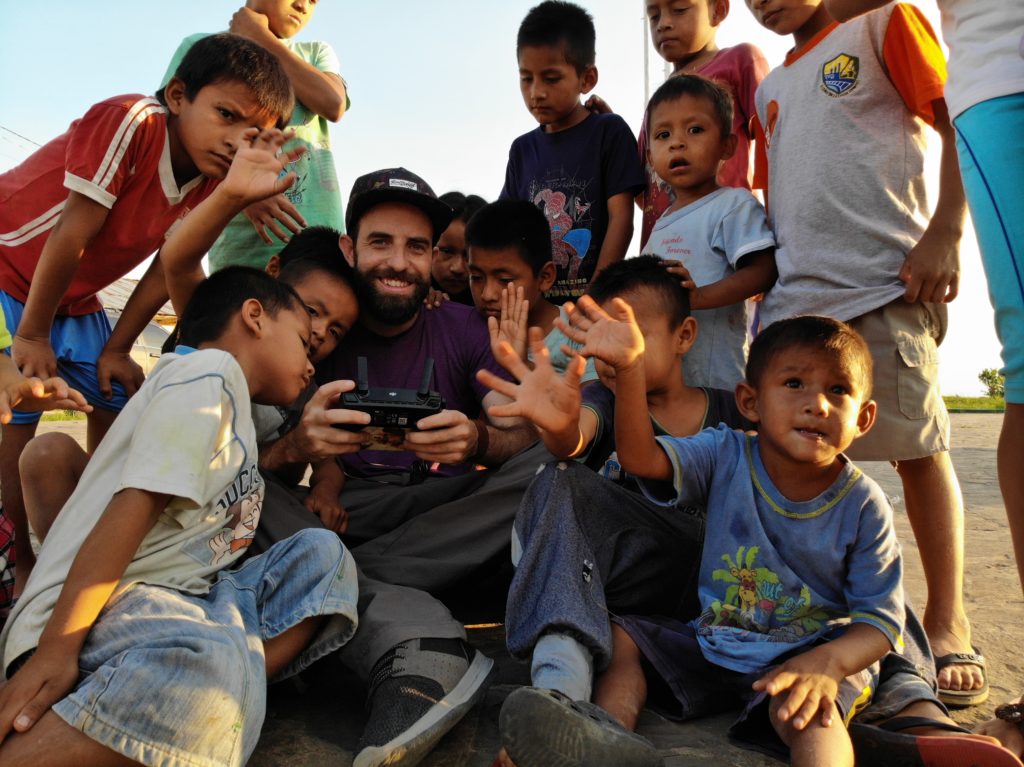
Globalization is all-encompassing. Our cultures have long crossed borders, reaching far and wide. A kid from Copenhagen consuming content on Netflix or Youtube would have much in common as a kid from Arequipa watching the same. Most probably, they will be able to communicate successfully in English without realizing that a good part of their identity disappears along the way. The Internet has released the boundaries of content (to a certain extent), bringing cultures to evolve similarly.
This worldwide phenomenon has developed closer cultural interrelationships, in which people are influenced by events happening anywhere in the world at an impressive speed. For example, CNN is not just a U.S. news program, but rather a global information reference. Whatever Donald Trump does or says generates critics and sympathizers worldwide, just seconds after his last discussion with a journalist at a press conference. Nowadays, anyone can become a journalistic reference, observed through the lenses of your phone, and broadcasted to the world. The Football World Cup or the 100-meter dash final at the Olympics used to be the only world-class sporting events. A La Liga match in Spain, any main event at UFC, or an interesting NBA match can attract the whole world’s attention through a cheap subscription on a digital platform, or even free. A discussion between the lovers of a well-known artist is followed by millions of people (as are the sneakers he wears). Pop music is now “world music”; that’s why a Korean boy band can fill stadiums in places as far as Scotland or Nicaragua. Amazon or Alibaba fight to be the world’s virtual store and platforms like Facebook or Instagram can turn candidates into presidents at the final week of a campaign. Cryptocurrencies are demanded and traded by exchangers due to the worldwide desire to end middlemen. Human rights finally mean the same worldwide, and the latest PlayStation is as eagerly awaited as a cure for cancer. The frenetic speed at which information is transmitted today has created cultural shortcuts never seen before. Nathy Peluso’s latest video can influence as many people in only one week as all of the Rolling Stones’ albums developed over fifty years combined. Culturally speaking, we all live under the relentless dictatorship of the now.
The process of globalization is unfolding in billions of unique and unrepeatable individuals who are constantly comparing their cultural reality with the global one they can now access due to the Internet.
People are no longer Brazilians, Turks, or Mongols; they are now beginning to be virtual citizens of the world without any migratory requirements other than their own curiosity. In fact, the phenomenon is much more profound: each individual is continually choosing the colors of his own flag. Luis is English for music and soccer, as Peruvian as the chullo covering his head, and as Californian as the Vans sneakers and the skateboard he rides today. He is vegan, except for Thai food, and is a leftist progressive who occasionally believes that foreign investment is necessary. How is it possible for something like this to happen? Well, just thirty years ago, millions of teenagers were influenced by MTV programming. Today, YouTube has personalized that programming to such intimate levels that every human life now possesses its own soundtrack (its own algorithm). If we were to print all the information uploaded on the Internet in a single day, not even the most extensive library in the world would be able to archive it. The technological giants have become imperceptible mediators through which millions of human beings tirelessly influence each other. Every message, every video, every tweet, and every meme contains information transmitted from one culture to another. Instantly.
This interpretation happens so many times that we are beginning to replace a good part of our identity with another that makes us feel part of a much larger group. That’s why a young lady from a small village outside of Cusco is trading hundreds of years of culture when switching her typical clothing (vestimenta típica) with one more “modern” due to the content she consumes on her mother’s $35 phone. Thousands of children in Kenyan villages are beginning to replace local dances with American hip hop. An even larger group of young Bolivians no longer understand why they should continue to speak Quechua. This is happening because each of us is choosing a global identity, and maybe we are doing it in the name of radical progress.
Why do I use the word “radical progress”? Because real progress always brings radical changes. It is radical that any human being on the planet can become an entrepreneur with just a good idea and a local business page on Facebook (which is as local as a satellite orbiting earth). It is radical that physical limitations, economic impediments, and social categorizations can no longer impede human learning. It is radical because communication between human beings no longer respects limits. Our tools have come to satisfy even our most intimate needs. Today, each human being’s progress depends on his or her own determination and the discipline with which he or she achieves the habit of learning. An 11-year-old child learning a photoshop tutorial in a Beverly Hills mansion has the same possibilities of acquiring the same knowledge as another one watching it from the only internet cabin in one of the villages near Lake Titicaca. To truly democratize talent throughout humanity, isn’t that radical?
Today the whole world fits inside a smartphone. Anyone with an internet connection can discover it. Wars, hate, and racism are the cost we pay while trying to tolerate each other. Perhaps at some point, the union that technology provides us would help us overcome our non-existing barriers, forming a truly global tribe.

